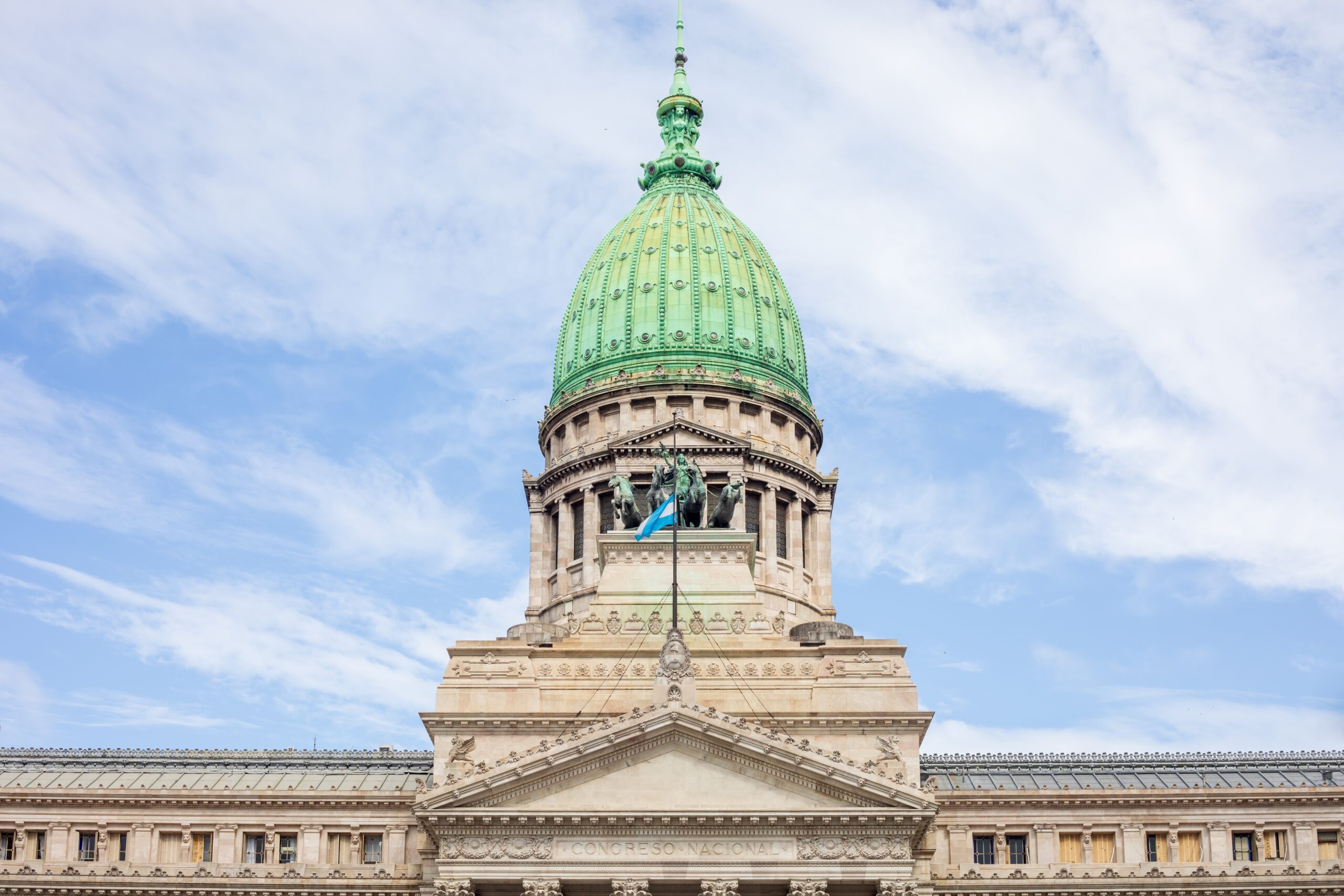Legislative Elections 2025: What’s at Stake in Argentina’s New Congress

On October 26, Argentina will elect 127 deputies and 24 senators in a vote that will redefine the political balance of Congress and mark a turning point in Javier Milei’s administration. The results will reveal whether the ruling coalition — La Libertad Avanza (LLA) and its allies — can expand its legislative power or whether the opposition will consolidate its capacity to negotiate and block government initiatives. These will also be the first national elections using the single paper ballot, a new voting format implemented nationwide.
In the Chamber of Deputies, the ruling coalition risks only 22% of its seats, while its PRO allies face a tougher scenario, with nearly 60% of their seats up for renewal. Among third forces, UCR and Coalición Cívica will renew over 70% of their seats, and Unión por la Patria (UP) will put 47% of its bloc at stake. This high level of turnover could lead to a more polarized Congress if voters gravitate toward the two main forces — LLA and UP.
In the Senate, where one-third of the seats will be renewed, the ruling coalition is not defending any, although it will still fall short of the one-third threshold needed to uphold presidential vetoes.
The political climate of 2025 has been shaped by economic and political crises that have affected the government’s image. The $LIBRA case, an alleged cryptocurrency scam, and the ANDIS audio leaks, involving alleged bribery requests, led to judicial and legislative inquiries. Adding to the turbulence, the Peronist victory in Provincia de Buenos Aires on September 7 highlighted the resilience of the opposition’s territorial machinery and reshaped the national political landscape. In response, the government accelerated negotiations with the United States to contain the dollar and inflation, while the use of presidential vetoes on social legislation further strained relations with Congress.
Given this scenario, a highly fragmented Congress is expected to take office on December 10, where provincial and federal third forces will play a decisive role in ensuring governability. The ruling coalition aims to secure one-third of the seats to sustain vetoes and negotiate key bills but will need to forge alliances across multiple blocs to advance its agenda.
Throughout 2025, Congress has shown a more coordinated opposition role and a growing capacity to control the legislative agenda. Among the most notable actions were motions to summon committees, the creation of new investigative commissions on the $LIBRA case and fentanyl-related deaths, rejections of presidential decrees, and insistence on overridden vetoes. These moves reflect a more active Parliament, determined to limit the Executive’s power and reshape the balance between branches of government.
The October elections will be a crucial test of the government’s political support and a preview of how forces will reorganize within Congress. The outcome will determine not only the ruling coalition’s ability to govern but also the role that third forces will play as key brokers in the new parliamentary balance.
